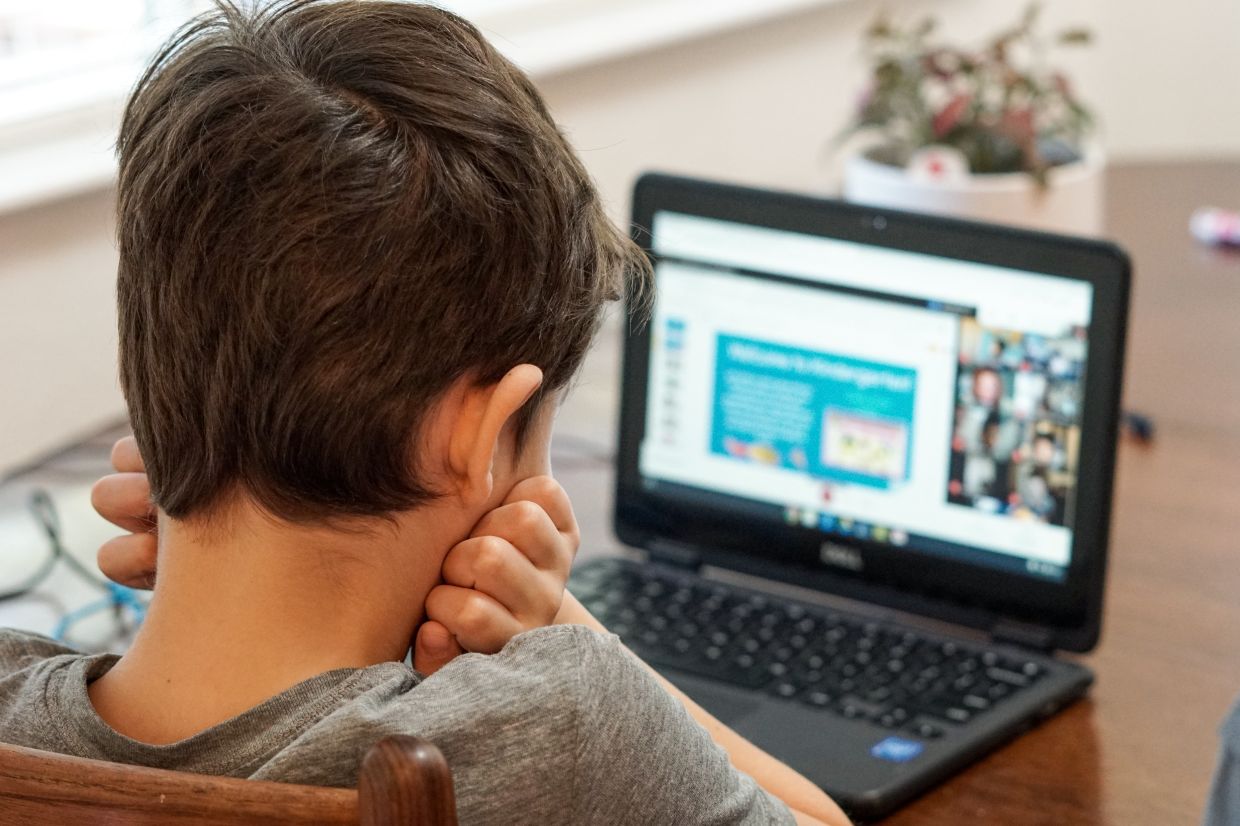Why Does Juggling Work Stress and Parenting Matter?
Balancing work stress and parenting matters is essential because it impacts your well-being, your child’s development, and the harmony in your family. Managing this delicate balance is vital for your mental health, your child’s resilience, and the overall dynamics at home. Prioritizing self-care practices, seeking support, and establishing boundaries are key strategies for finding equilibrium. Remember, taking care of yourself benefits both you and your loved ones in the long run.
Key Takeaways
- Impact on parental well-being and mental health.
- Influence on child development and emotional regulation.
- Strains on family relationships and communication dynamics.
- Long-term effects on mental health and burnout risks.
- Importance of self-care practices and resilience building.
Impact on Parental Well-being

Balancing work stress and parenting responsibilities can greatly impact your overall well-being as a parent. The constant juggling act of meeting work demands while ensuring your child’s needs are met can lead to feelings of overwhelm and exhaustion. It’s vital to prioritize self-care practices to maintain a sense of balance and prevent burnout.
Engaging in activities that promote relaxation and personal well-being, such as mindfulness exercises or regular exercise, can help you recharge and better cope with the challenges you face.
Seeking parental support is another critical aspect of maintaining your well-being. Connecting with other parents who understand the struggles you’re going through can provide a sense of camaraderie and validation. Well-being workshops or support groups can offer valuable coping mechanisms and strategies for managing stress effectively.
Influence on Child Development

The integration of work stress and parenting responsibilities can greatly impact your child’s emotional and cognitive development, shaping their resilience and coping skills for the future.
Your child’s cognitive development, which involves their ability to learn, think, and solve problems, can be influenced by the environment at home. When you, as a parent, are stressed from work, it can inadvertently affect the quality of interactions and stimulation your child receives, potentially hindering their cognitive growth.
Moreover, emotional regulation, the ability to manage and respond to emotions in a healthy way, is also impacted by the juggling act of work stress and parenting. Children often look to their parents for guidance on how to handle emotions, and if you’re constantly stressed or overwhelmed, it can model unhealthy coping mechanisms for your child.
Strains on Family Relationships
Balancing the dual demands of work stress and parenting can place significant strains on family relationships, impacting communication dynamics and emotional connections within the household. The constant juggle between work responsibilities and parenting duties can lead to disruptions in family dynamics, causing conflicts to arise more frequently. Communication may suffer as individuals struggle to find time to connect meaningfully amidst their busy schedules. This lack of communication can result in misunderstandings, feelings of neglect, and a breakdown in emotional connections between family members.
Conflict resolution becomes challenging when the demands of work and parenting leave little room for open and honest discussions. Establishing boundaries becomes essential to maintain a healthy balance within the family unit. Setting clear expectations and boundaries can help manage the stressors that come with juggling multiple responsibilities.
It’s important to create space for open communication, prioritize quality time together, and address conflicts promptly to prevent them from escalating and further straining family relationships.
Strategies for Balancing Responsibilities
Managing the demands of work stress and parenting can be a challenging task for many individuals. Time management plays a vital role in finding a balance between these responsibilities. Start by creating a schedule that includes dedicated time for work tasks, family activities, and personal relaxation. Prioritize tasks based on urgency and importance to make sure that you’re focusing on what truly matters.
In addition to effective time management, self-care strategies are essential for maintaining your well-being while juggling work and parenting. Make time for activities that help you relax and recharge, whether it’s reading a book, going for a walk, or practicing mindfulness.
Remember that taking care of yourself isn’t selfish but necessary to be able to care for others effectively.
Long-term Effects on Mental Health

As you navigate the delicate balance between work stress and parenting, it’s essential to recognize the potential long-term effects on your mental health.
The constant juggling act can take a toll on your well-being, leading to increased stress levels and emotional exhaustion.
Implementing effective stress management strategies is pivotal to safeguard your mental health in the long run.
Mental Health Impact
Juggling the demands of work stress and parenting can have lasting effects on your mental health, impacting various facets of your well-being over time. The constant pressure from balancing these responsibilities can take a toll on your emotional well-being and stress management.
When coping with these challenges, it’s important to prioritize self-care routines and develop effective coping mechanisms to safeguard your mental health. Engaging in activities that bring you joy, setting boundaries to protect your personal time, and seeking support from loved ones are key aspects of maintaining your mental well-being.
Neglecting your mental health in the face of work stress and parenting demands can lead to long-term consequences such as burnout, anxiety, and depression. It’s crucial to recognize the signs of mental strain and address them proactively.
Stress Management Strategies
When managing the long-term effects of stress on your mental health, employing effective strategies is vital for maintaining your overall well-being. Stress relief plays an important role in mitigating the impact of ongoing stress on your mental health. Engaging in activities like meditation, exercise, or hobbies can help alleviate stress and promote a sense of calmness.
Additionally, seeking parental support can be pivotal in managing stress levels. Talking to other parents who may be experiencing similar challenges can provide a sense of community and understanding, reducing feelings of isolation and pressure. Parental support can also involve sharing responsibilities with a partner or seeking help from family members or friends to lighten the load.
Enhancing Work-Life Integration

As you navigate the demands of work and family life, finding the right balance can be challenging. Incorporating work-life balance tips and stress management techniques can help you enhance your overall well-being.
Work-Life Balance Tips
Achieving a healthy work-life balance requires intentional actions and consistent effort to integrate your professional responsibilities with your personal life effectively.
Two key aspects to focus on are time management and self-care. Efficient time management involves setting priorities, creating schedules, and learning to say no when necessary. By allocating specific time slots for work, family, and personal activities, you can make sure that each aspect of your life receives the attention it deserves.
Additionally, practicing self-care is essential for maintaining a balance between work and personal life. This includes activities like exercising, meditating, pursuing hobbies, and spending quality time with loved ones. Remember that taking care of yourself isn’t selfish; it’s vital for your overall well-being and productivity.
Stress Management Techniques
To effectively manage stress and enhance work-life integration, it’s essential to develop personalized techniques that cater to your specific needs and circumstances. Incorporating mindfulness techniques into your daily routine can help you stay present and focused amidst work stress and parenting demands.
Engaging in stress relief activities such as meditation, deep breathing exercises, or yoga can provide a much-needed break and promote relaxation.
Effective time management is pivotal in balancing work and personal life. Prioritize tasks, set realistic goals, and allocate time for both work responsibilities and quality time with your family.
Implementing self-care practices is essential for maintaining overall well-being. Make time for activities that bring you joy and relaxation, whether it’s reading a book, going for a walk, or enjoying a hobby.
Coping With Daily Challenges
Managing the intricacies of daily challenges can be a demanding task, requiring a delicate balance between work stress and parenting responsibilities. In the midst of daily struggles, finding effective coping mechanisms becomes essential. It’s a constant balancing act, a tightrope walk where each step must be carefully placed to overcome obstacles efficiently.
When faced with overwhelming work stress and the demands of parenting, it’s important to develop coping strategies that work best for you. Whether it’s setting realistic goals, practicing mindfulness, or seeking support from loved ones, finding what helps you navigate through daily challenges is key.
Building Resilience in Children

Managing through the challenges of balancing work stress and parenting can also involve instilling resilience in your children to help them thrive in the face of adversity. Building resilience in children is important for their emotional well-being and future success. By fostering emotional intelligence and teaching them how to effectively cope with stress, you’re equipping them with essential life skills.
Resilience building starts with creating a safe and supportive environment where children feel secure to express their emotions and thoughts. Encourage them to communicate openly about their feelings, validate their experiences, and teach them problem-solving strategies. By doing so, you’re helping them develop a strong sense of self-awareness and empathy towards others.
Moreover, providing opportunities for children to face challenges, make decisions, and learn from failures can greatly contribute to their resilience. Encourage them to take risks, try new activities, and support them in overcoming setbacks. Through these experiences, children can develop confidence, adaptability, and a positive outlook on overcoming obstacles.
Creating a Supportive Environment
In cultivating resilience in your children, the foundation lies in establishing a nurturing and supportive environment that fosters emotional growth and open communication. Creating a supportive community both at home and in the workplace can greatly impact your child’s well-being. Family support plays an essential role in providing a sense of security and stability for your children, allowing them to navigate challenges with confidence.
A supportive community can offer resources, guidance, and a sense of belonging that reinforces your child’s emotional resilience.
Workplace culture also plays an important role in creating a supportive environment for both you and your children. When you feel supported at work, it can positively influence your parenting style and overall well-being, which in turn impacts your child’s development.
Frequently Asked Questions
Can Juggling Work Stress and Parenting Lead to Burnout?
When you try to juggle work stress and parenting without setting boundaries or prioritizing self-care, burnout can become a real risk. To prevent burnout, focus on work-life balance and establish healthy boundaries for a sustainable lifestyle.
How Can Parents Manage Guilt Over Balancing Work and Family?
Feeling guilty about balancing work and family is common. Coping strategies include setting boundaries, prioritizing tasks, and practicing self-compassion. Acknowledge that it’s okay to ask for help and remember, you’re doing the best you can.
Is There a Way to Measure the Impact of Juggling Responsibilities?
Feeling overwhelmed by juggling responsibilities is common. Measuring the impact involves evaluating stress levels and parenting influence. Recognizing these factors allows for understanding the weight of balancing work and family, aiding in better choices.
Are There Specific Techniques for Reducing Stress in Parents?
To reduce stress as a parent, try mindfulness techniques like deep breathing and self-care strategies such as setting boundaries. Prioritize time for yourself, engage in activities you enjoy, and practice self-compassion regularly.
Can Juggling Work Stress and Parenting Affect Physical Health?
Balancing work stress and parenting can impact your physical health. Prioritizing self-care, setting boundaries, and seeking support are essential. Maintaining a healthy work-life balance is vital for your overall well-being and longevity.
Conclusion
In summary, juggling work stress and parenting is essential for your well-being, your child’s development, and your family relationships.
Finding balance and implementing strategies to manage daily challenges can lead to long-term mental health benefits.
By creating a supportive environment and building resilience in both yourself and your children, you can enhance work-life integration and navigate the complexities of modern parenthood with grace and strength.
Remember, you aren’t alone in this journey.

Chad Adan Kace, a young dad from Vermont, shares his parenting journey with a touch of humor and lots of love. Father to a lively baby, he explores the joys and challenges of fatherhood through his stories.







